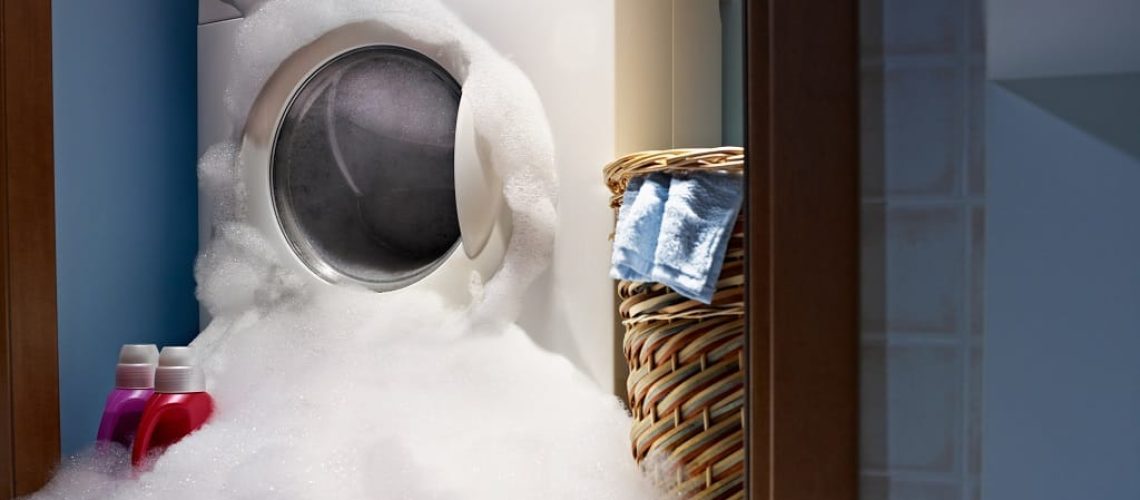Home appliances are the unsung heroes of daily life, making household tasks more efficient and convenient. However, like any other part of a home, appliances are not immune to wear and tear. During a home inspection, inspectors often uncover various issues with appliances that can impact their performance, safety, and longevity. In this comprehensive guide, we’ll explore the most common problems detected by home inspectors, shedding light on the importance of addressing these issues for a seamless and functional home.
1. Refrigerator Cooling Issues
Issue: Inadequate Refrigeration or Uneven Cooling
Home inspectors frequently encounter problems with refrigerator cooling systems. This may manifest as insufficient cooling, uneven temperatures, or the formation of ice in unintended areas.
Why It Matters:
Inadequate cooling can lead to food spoilage and compromise the efficiency of the appliance. Home inspectors recommend investigating and repairing issues related to the thermostat, condenser coils, or the refrigerant system to ensure proper cooling.
2. Dishwasher Drainage Problems
Issue: Inefficient Dishwasher Drainage and Water Retention
Home inspectors often find drainage issues with dishwashers, including slow drainage or water retention at the bottom of the appliance after a cycle.
Why It Matters:
Inefficient drainage can lead to unpleasant odors, mold growth, and damage to dishwasher components. Home inspectors stress the importance of clearing clogs, inspecting the drain pump, and ensuring proper drainage for optimal dishwasher performance.
3. Oven and Range Malfunctions
Issue: Temperature Inconsistencies, Failed Igniters, or Heating Element Problems
Issues with ovens and ranges are common findings during home inspections. These problems may include temperature inconsistencies, failed igniters, or malfunctioning heating elements.
Why It Matters:
Malfunctioning ovens can lead to uneven cooking, undercooked or overcooked meals, and safety hazards. Home inspectors recommend repairing or replacing faulty components, such as igniters or heating elements, to ensure accurate and safe cooking.
4. Microwave Functionality Concerns
Issue: Inoperative Microwave Functions or Uneven Heating
Home inspectors often identify problems with microwave functionality, including issues with the turntable, door seals, or uneven heating of food.
Why It Matters:
Inoperative functions can hinder the efficiency of the microwave, and uneven heating may result in undercooked or overcooked food. Home inspectors recommend addressing these issues promptly to maintain the appliance’s functionality and safety.
5. Washing Machine Leaks and Drainage Problems
Issue: Water Leaks, Drainage Obstructions, or Unbalanced Loads
Issues with washing machines commonly surface during home inspections, such as water leaks, drainage problems, or unbalanced loads causing excessive vibrations.
Why It Matters:
Water leaks can damage flooring and surrounding areas, drainage problems may lead to mold growth, and unbalanced loads can cause mechanical issues. Home inspectors recommend addressing these concerns to ensure the proper functioning of the washing machine and prevent potential water damage.
6. Dryer Ventilation and Lint Buildup
Issue: Inadequate Ventilation or Accumulation of Lint in Dryer Ducts
Dryer ventilation problems and lint buildup are frequent discoveries made by home inspectors. Improper ventilation can lead to longer drying times, while lint accumulation poses a fire hazard.
Why It Matters:
Inadequate ventilation reduces dryer efficiency and increases energy consumption. Lint buildup in ducts poses a serious fire risk. Home inspectors stress the importance of proper venting and regular cleaning to maintain dryer efficiency and safety.
7. Water Heater Issues
Issue: Inefficient Heating, Corroded Components, or Leaks
Home inspectors often encounter problems with water heaters, including inefficient heating, corroded components, or visible leaks.
Why It Matters:
Inefficient water heaters result in higher energy bills, corrosion can compromise the lifespan of the appliance, and leaks may lead to water damage. Home inspectors recommend addressing these issues promptly to ensure efficient and safe water heating.
8. HVAC System Malfunctions
Issue: Inadequate Heating or Cooling, Faulty Thermostats, or Airflow Problems
The HVAC (Heating, Ventilation, and Air Conditioning) system is a crucial component of home comfort, and inspectors often identify issues such as inadequate heating or cooling, faulty thermostats, or airflow problems.
Why It Matters:
Malfunctioning HVAC systems compromise indoor comfort, reduce energy efficiency, and may lead to costly repairs. Home inspectors stress the importance of addressing HVAC issues promptly to maintain a comfortable and energy-efficient home.
9. Garage Door Opener Problems
Issue: Inoperative or Noisy Garage Door Openers
Home inspectors frequently encounter issues with garage door openers, including inoperative functions or excessive noise during operation.
Why It Matters:
Inoperative garage door openers compromise convenience and security, while noisy operations may indicate mechanical issues. Home inspectors recommend inspecting and lubricating moving parts to ensure smooth and quiet operation.
10. Issues with Electrical Appliances
Issue: Faulty Wiring, Overloaded Circuits, or Malfunctioning Controls
Various electrical appliances, such as dishwashers, refrigerators, or ovens, may exhibit issues related to faulty wiring, overloaded circuits, or malfunctioning controls.
Why It Matters:
Electrical issues pose safety hazards and can lead to appliance malfunctions or failure. Home inspectors stress the importance of addressing electrical problems promptly and consulting with a qualified electrician for repairs.
Conclusion
Home appliances are the backbone of daily life, providing convenience and efficiency. During a home inspection, inspectors meticulously evaluate these appliances to ensure their functionality and safety. From refrigerator cooling issues to dryer venting problems, addressing these common concerns is crucial for maintaining a seamless and functional home environment. In the realm of homeownership, proactive measures, regular inspections, and timely repairs are key to mitigating the risks associated with appliance issues and ensuring the longevity of these essential household tools.
For other issues that home inspectors commonly find, read our article, Uncovering a Home’s Dirty Secrets.


